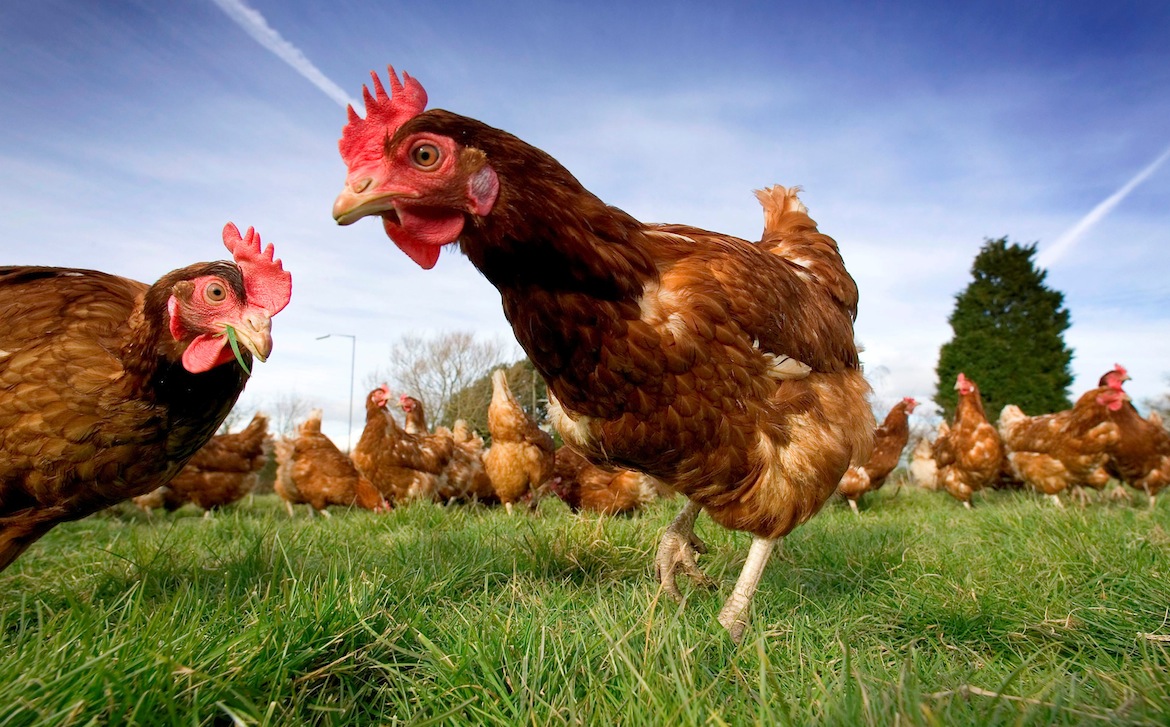
A report has been released showing leading businesses worldwide who consistently engage and report their farm animal welfare policies and practices.
The global Business Benchmark on Farm Animal Welfare (BBFAW) report published today (23 January 2017), shows an annual review of how 99 of the world’s leading food companies are managing risks and opportunities associated with farm animal welfare.
The report, which is compiled in collaboration with leading animal welfare organisations Compassion in World Farming, World Animal Protection and investment firm, Coller Capital, reveals that companies are paying increased attention to farm animal welfare within their supply chains.
For example, 73% of companies have now published farm animal welfare policies (compared to just 46% in 2012) and 65% of companies have published targets on farm animal welfare (up from 26% in 2012).
Currently, 13 companies occupy leadership positions in the Benchmark’s top two tiers. These companies demonstrate strong commitments to farm animal welfare and have established management systems and processes.
They include Noble Foods, Cranswick Coop Group (Switzerland), Marks & Spencer, Migros, and Waitrose in Tier 1, and BRF, Cargill, Co-op (UK), Greggs, McDonald’s, Unilever and Tesco in Tier 2.
A total of 36 producers and manufacturers were reviewed in the BBFAW report with 11 moving up at least one tier, (Cargill and Mondelez International both moved up two tiers), six new entries, 18 non-movers, while Brazilian producer Marfrig fell two tiers to Tier 4.
'Consistent leader'
Veli Moluluo, Managing Director, Consumer Foods Division, Noble Foods expressed the company’s delight at retaining their Tier one ranking: “Our commitment to continually seek to improve the welfare of animals on our farms, or those owned by our contracted farmers, is absolute.
“To be recognised as a consistent leader in this field since the BBFAW report was launched in 2013 is very pleasing, and the interest from customers and consumers alike is testament to the growing profile of both BBFAW and the subject as a whole.”
One area in which Cranswick scored highly in the report is its commitment to the avoidance of long-distance transport.
They have a KPI to keep typical journey times to its own processing sites to below eight hours, with typical journey times between 3-4 hours.
The report also highlights the important role being played by institutional investors in driving improvements in practice and process across the food industry.
'An important business issue'
Reflecting on these findings, BBFAW Executive Director, Nicky Amos, said: “With 26 companies moving up at least one tier since 2015, there is a clear indication that the food industry is finally starting to treat farm animal welfare as an important business issue.
“Despite this progress, 42 of the 99 companies (including Restaurant Brands International, Domino’s Pizza Group Plc and Starbucks Corporation) appear in Tiers 5 and 6, demonstrating there is still much work to be done to even get farm animal welfare on the business agenda of many large global food companies.”
BBFAW Advisor, Rory Sullivan, said the Benchmark shows that investors are 'key agents of change'.
He said: “They are sending a clear signal to companies that they expect food companies to effectively manage the systemic risks and opportunities posed by farm animal welfare, and it is clear that companies are responding to these expectations.”
Compassion in World Farming’s CEO, Philip Lymbery said the public have witnessed some 'monumental market shifts' for animal welfare since the last BBFAW report.
Mr Lymbery said: “Stakeholders and investors are pushing this progress forwards, reflecting the wishes of the vast majority of consumers today. It is increasingly clear that this is an issue which cannot be ignored by companies and we congratulate those that are moving up the ranking and driving progress in animal welfare across the food industry.”
